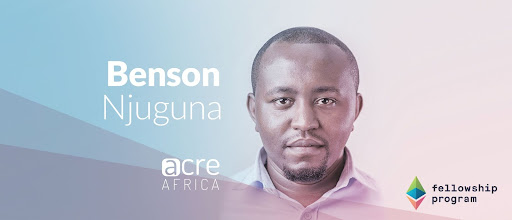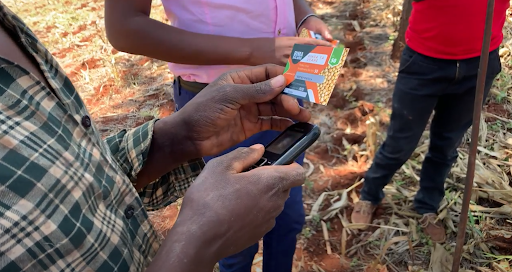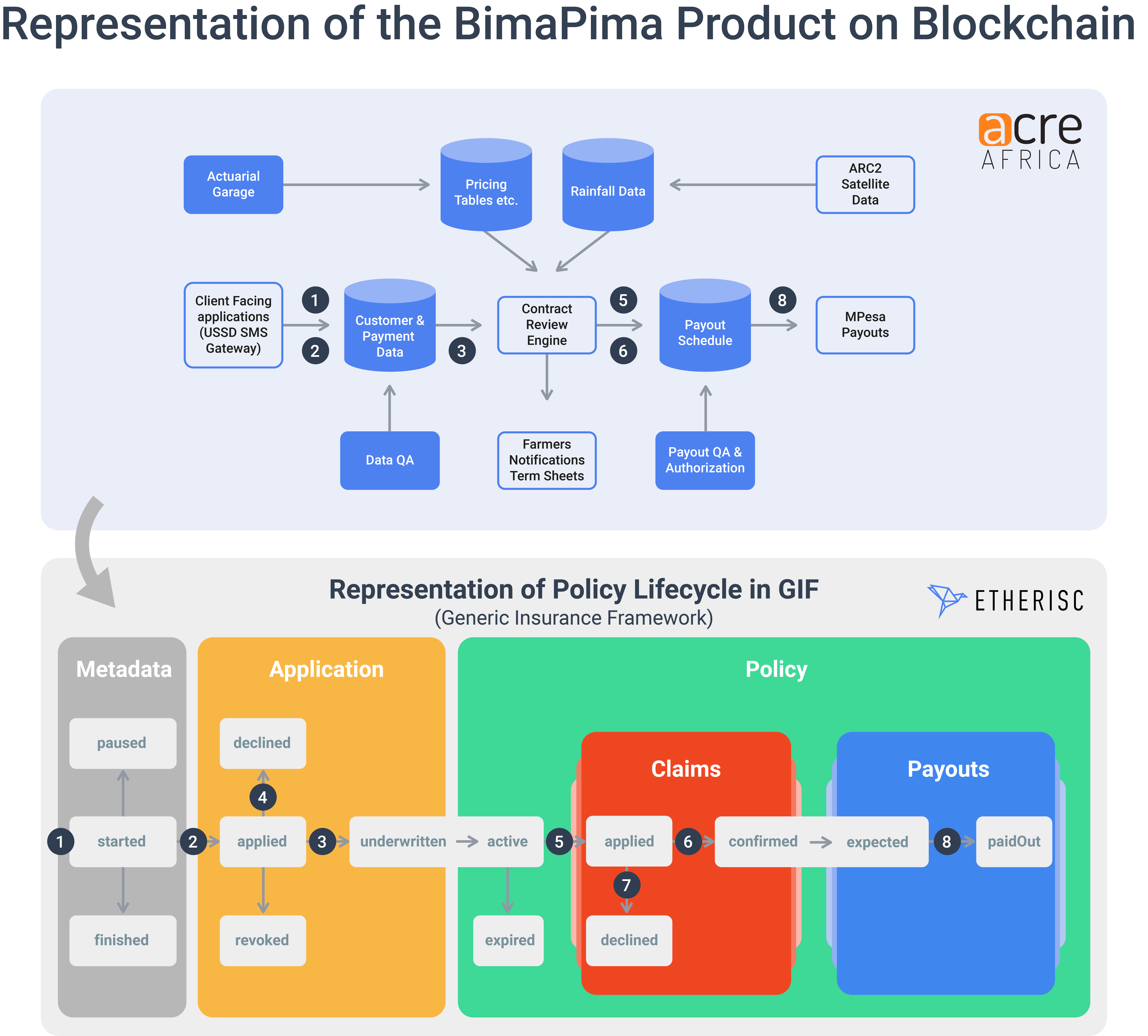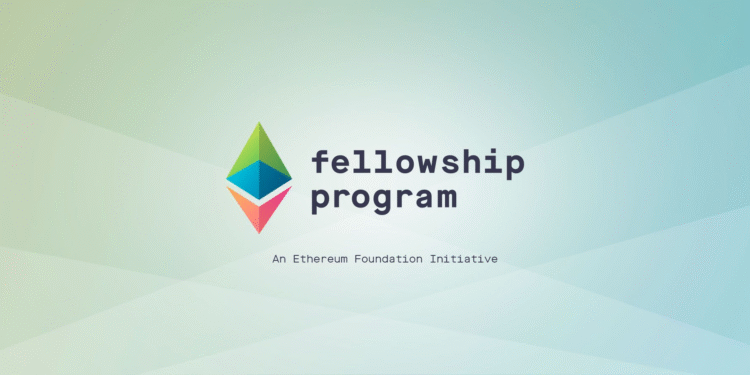In Sub-Saharan Africa, solely 3% of 48 million smallholder farmers are insured. Proudly owning 1 acre of land and incomes roughly $1.40 per individual per day characterize a smallholder farmer. Smallholder farmers typically personal a combination of money crops and subsistence or non-commercial farming; and, they lack the monetary and technological assets of large-scale industrial farms. As excessive climate occasions develop into ever extra frequent on account of local weather change, one flood or drought can push such farmers into the spiraling cycle of poverty with out safety by the use of crop insurance coverage.
The next is an replace from Ethereum Basis Fellow Benson Njuguna.

Benson is on a mission to raise humanity from an financial standpoint via progressive concepts pushed by know-how. He’s a Enterprise Transformation Specialist at ACRE Africa, a microinsurance service supplier based mostly in Kenya. For extra concerning the Ethereum Foundation Fellowship Program, read this blog post.
Roadblocks for Farmers: Belief and Affordability
Companies like ACRE Africa have supported farmers by delivering threat administration options and agricultural insurance coverage merchandise that tackle the precarious and unsure livelihoods that farmers face. One problem on this discipline is that farmers have a unfavourable preconception of insurance coverage suppliers on account of a historical past of delayed or absent payouts. Farmers are unaccustomed to being given essential data associated to their coverage – even one thing so simple as affirmation about whether or not they’ll obtain a payout for losses incurred.
At ACRE Africa, a typical smallholder farmer with a half-acre plot pays about USD 50, which is simply sufficient to cowl farm inputs corresponding to seeds and fertilizers.
For insurance coverage companies, such low premiums imply that scale is required to interrupt even, a lot much less to show a revenue. Saving on prices via digitization and automation is essential, not just for insurance coverage companies’ industrial viability, but in addition to be sure that farmers can afford the insurance coverage premium.
The Drawback: Previous Crop Insurance coverage Payout System
Each farmer’s life is formed by two seasons in Kenya and the area: the lengthy rain season and the quick rain season. The lengthy rain season begins in April and ends in July, whereas the quick rain season begins in October and ends in December. For the primary cycle of the lengthy rain season in April, farmers start to purchase insurance coverage. To get began, they’re required to fill out many kinds. As soon as the kinds are full and the insurance coverage product has been bought, ACRE Africa displays the chance and local weather till the top of the season. In brief, if there’s a climate occasion throughout the interval over which a farmer bought insurance coverage, they are going to be paid solely after the next season has already began. Nevertheless, with out insurance coverage, the farmers would have suffered monetary loss and struggled to proceed farming into the next season.
The Answer: ACRE’s BIMA PIMA

A farmer in Embu County, Kenya is activating his insurance coverage coverage, utilizing a scratch card included within the bag of seeds he bought. (Due to Acre Africa for supplying this picture)
The BIMA PIMA product, which accurately means insurance coverage in small installments, is among the latest insurance coverage options from ACRE Africa. It was carried out in partnership with Etherisc, whose staff has developed a decentralized insurance coverage platform on Ethereum.

Farmers looking for protection with BIMA PIMA first purchase seeds for the season from a partnering agricultural provider. Every bag of seeds features a scratch card with a singular license plate. For the pilot, we included the worth of fundamental insurance coverage within the seed worth, however farmers are additionally in a position to buy extra protection via a cellular cost community (M-PESA).
When planting the seeds, the farmer will use SMS/USSD to activate the insurance coverage coverage. Through the USSD activation, their location, and cellphone quantity, together with all different related particulars obtained from the license plate (corresponding to the kind of crop and quantity lined) are handed into the coverage sensible contract on the xDai chain; this course of is called triangulation and ends in the automated creation of a brand new coverage. The farmer instantly receives a textual content message informing him/her that the coverage is energetic.
The choice system displays and compares precise and historic climate knowledge that triggers the approval of a declare. Right here, the payout shouldn’t be based mostly on human evaluation, however moderately on pre-defined “home windows” or phases all through the farming seasons (i.e. germination, vegetation, flowering, extra rain). So long as the climate and local weather knowledge collected meets the factors agreed within the coverage, the declare is authorised; then, the farmers obtain funds throughout the ongoing season and should not have to attend till the top of the season, as was beforehand the case. The farmers will obtain an SMS after the coverage was triggered and might examine the standing of their insurance coverage coverage through a cellular machine.
Our aim is to achieve each farmer’s confidence by offering extra related data, sooner payouts, decreasing prices for the insurance coverage product in addition to an audit path for accountability.
First payout made through blockchain
Earlier this yr, we made our first payout to a farmer, Samuel, who purchased an insurance coverage coverage for maize seeds!
As of immediately, 511 mid-season payouts, totaling KES 75,295 (2,766 USD) have been made.
Subsequent hurdles and steps
Although this new system addresses current challenges and improves the present methods in Kenya (and shortly in Tanzania and Zambia), it has not been with out hiccups. We’re nonetheless a great distance from a totally ‘decentralized’ insurance coverage resolution. Payouts, for instance, although technically potential, will not be totally automated but. One of many major challenges stays enhancing processing occasions for claims approvals. Identical to within the previous payout system, claims find yourself sitting on somebody’s desk, ready for approval. Likewise, the events exterior of our mission (ex: the insurer, the re-insurer who help us within the claims processing, and regulator) even have their very own standalone system, and there are nonetheless points which develop into bottlenecks as they require a handbook approval course of. Trying forward, we are going to share related data concerning insurance policies with all stakeholders. With direct entry to 1 system via customised dashboards, we think about every stakeholder accessing one supply with an entire audit path.
I’m hopeful that our BIMA PIMA insurance coverage product can function a profitable mannequin to revitalize the a lot wanted belief between farmers and insurance coverage suppliers. I took up pc sciences to assist my group, and realised from an early age that know-how was wanted to permit nations like Kenya to be a part of the worldwide market. I’m excited to be part of that, and to be working towards a future the place hundreds of thousands extra household farmers and billions of individuals in growing nations expertise the beginnings of decentralization.
We hope you will proceed to remain related with the Fellowship Program, and we might love to listen to from you if you happen to’re trying to get in contact by e mail at fellowship@ethereum.org. Lastly, join with Benson on Twitter, or attain out online to contact other Fellows, or to be taught extra about this system.


















